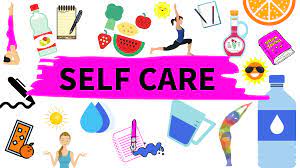Anhedonic depression is a type of depression that is characterized by an inability to feel pleasure. People who suffer from anhedonic depression may find it difficult to enjoy activities they used to enjoy and may feel apathetic and listless. If you think you may be suffering from anhedonic depression, it is important to get help. In this blog post, we will discuss what anhedonic depression is, and how you can treat it.
Contents
What Is Anhedonia?
Anhedonia is a term that refers to a loss of enthusiasm for activities that someone previously enjoyed, as well as an inability to feel pleasure. It’s one of the most significant depressive disorder symptoms, but other mental illnesses can also cause it. Anhedonia affects people of all ages and genders.
Anhedonia is an inability to experience joy. Most people understand what joy is. They expect certain things to make them happy in life. Maybe they enjoy cycling, listening to the sounds of the ocean, or taking someone’s hand. However, some people lose the feeling of joy. The things that once made them happy are no longer funny or amusing. This is anhedonia.
Examples Of Anhedonia
Anhedonia can affect people in a variety of ways. Let’s go through some of the ways it can feel:
- You used to enjoy playing in a soccer league at night, but you no longer want to participate in the game or interact with your teammates.
- Cooking was an enjoyable pastime of yours, but you don’t care about it anymore and have to remind yourself to eat.
- You no longer feel compelled to go out with your pals.
- You’re not interested in your spouse anymore, and you have a severely reduced sex drive.
- Going to a live performance, for example, used to make you feel wonderful, but it no longer does.
Anhedonia is a lack of pleasure, which can be an indication of a severe mental health problem. It’s critical not to self-diagnose anhedonia. If you think you may have anhedonia, see your doctor or a mental health specialist as soon as possible.
Symptoms
While the debate rages on as to whether anhedonia may be classified into two distinct types, certain research suggests that it might be divided into social and physical anhedonia.
The inability to experience pleasure from social interactions is referred to as social anhedonia. Physical anhedonia is a condition in which one is unable to feel tactile pleasures such as eating, touching, or sex. The following are examples of anhedonia symptoms:
- emotional isolation
- decreased enjoyment from routine activities
- a lack of contact with friends and family, or a decision to cut ties with them
- a person who is uninterested in past interests
- a lack of desire for physical intimacy or a loss of sexual interest
Causes
Anhedonia is a major symptom of depression but it has also been observed in individuals suffering from chronic pain and Parkinson’s disease. Anhedonia is a condition in which people don’t feel pleasure from previously enjoyed activities. Some risk factors include:
- Living with PTSD
- Dealing with harsh traumas
- Drug or alcohol abuse
- A chronic complex disease that has a negative impact on your quality of life
Diagnosis
The diagnosis of Anhedonia can be easily done. You need to discuss it with your doctor. They’ll ask you about your symptoms and how you’ve been feeling lately. They may also inquire about any substance abuse problems that you may have.
A physical examination might be done by your doctor to check for any physical problems. In addition, a blood draw may be requested to check for a vitamin deficiency (such as vitamin D) or a thyroid disease, which might be causing depressive symptoms.
Treatment Options
Treating anhedonia may be difficult. In many situations, therapy begins with techniques to help you cope with the mental health problem that is most likely causing the condition.
The first step in your treatment should be consulting a medical expert. A primary care physician should be your first choice for determining whether or not a medical problem is to blame for your symptoms. If they can’t discover any medical problems, they may suggest you see a psychologist, psychiatrist, or other mental health professional.
A healthcare practitioner may suggest that you see a therapist, or you may check with your insurance provider for someone.
Medications 
Your mental health care provider may prescribe you medications in order to heal quickly. It should be noted that people respond differently to medications. A medication that is effective for you might not be effective for someone else with similar symptoms. Some common medications to cure Anhenonic depression are Fluoxetine( Prozac), Escitalopram (Lexapro), and Ketamine (Ketalar). They help overcome the symptoms of Anhedonia in people. Consultation with your doctor is highly mandatory before you intake any of the pills.
If you are using it for a long period of time, such as halfway through the day, take one pill every four hours. The effects may begin to wear off between doses and cause drowsiness or fatigue. You should follow your doctor’s instructions carefully when taking this drug. They may need to change the dose or prescribe you a different treatment if necessary.
Therapy
Seek out therapy when needed. Your doctor will assist you in developing a therapy strategy that is appropriate for you. The required therapies will help you overcome the issue of anhedonic depression. Therapies should be done under the guidance of a professional and trained therapist. Some common therapies in this regard are:
Electroconvulsive Therapy
Electroconvulsive therapy (ECT) is another type of treatment that may be employed in some situations. ECT is a highly successful therapy for severe depression that has not responded to treatment or medication. Some specialists believe that it should be used right away, especially with individuals who have uncomplicated depression. It should be utilized sooner rather than later, particularly among people with simple sadness. During this therapy, a physician applies an electric current to the head while the patient is under general anesthesia. This causes a minor brain seizure.
Transcranial Magnetic Stimulation
Transcranial magnetic stimulation (TMS) works by using a magnetic field to stimulate nerve cells. It uses a far lower electric current than ECT and does not require general anesthesia. TMS can be used to treat severe depression in individuals who don’t respond to antidepressants.
Vagus Nerve Stimulation
Vagus nerve stimulation (VNS) is a third treatment option (VNS). A medical device similar to a pacemaker will be implanted in your chest. The wires of this gadget generate constant electrical impulses that stimulate your brain. VNS, like ECT and TMS, can help people who don’t respond well to other therapies cope with sadness.
Self Care Strategies
Apart from therapies and medications, you can follow some self-care tips as well. Practicing with the right strategy for a consistent period of time may overcome anhedonia. Some of the strategies are explained below:
Modify Your Lifestyle Habits
There are certain individuals who have slightly unbalanced levels of dopamine. However, many positive changes in lifestyle can help maintain dopamine levels. You can try modifying some habits. Getting enough sleep, exercising more, reducing psychosocial strain, eating healthy meals on a regular basis, and participating in meaningful social interactions, are all modifiable. These activities reduce inflammation in the body and brain.
Limit The Use Of Electronics At Night
Our modern technologies have become one of our primary ways to see the world and interact with others. When our brains get used to rewards coming only from our phones and computers, it might dampen our capacity to enjoy non-digital activities. The consumption of electronic gadgets in our homes is becoming increasingly addictive. Limit the use of such devices. It will help reduce your exposure to electronics in the hours before bedtime so that you may get some of the advantages.
Treat Yourself Like Your Close Friend
Do everything you can to convey to yourself that you are deserving of care and compassion. You may not feel like going for a walk or meeting up with friends because it will not make you feel better. But ask yourself what would be the most beneficial for me right now? How can I demonstrate care and kindness to myself?
Identify Your Thinking Patterns
Identify thinking patterns that might harm your efforts to care for yourself, such as all-or-nothing thinking. All-or-nothing thinking entails the idea that in order to socialize, you must have fun activities prepared and conversations that flow effortlessly throughout the time, or it isn’t worthwhile. Being conscious of this type of thinking helps you begin generating alternative ideas by assisting you to recognize what other people who are under stress could do better rather than just focusing on how poorly they’re doing right now.
Make A Note Of What You’re Doing Daily
You might have bad attitudes about yourself and the world, which isn’t all that surprising at such times. Your thoughts may be coupled with terrible views of the future, such as “It won’t get better,” or “I’m going to feel like this for the rest of my life.” To help restructure your beliefs, keep a thought diary. On a piece of paper, record everything you can remember about a scenario (the world and/or the future), as well as your feelings and automatic thoughts (either of yourself, the world, or the future).
Replace Negative Thoughts With Neutral Ones
Take the time to develop balanced thoughts to overcome your negative notions. A neutral idea could be “Even though my friend and I aren’t as close as we used to be, she still checks in on me,” for instance. It takes into account both negative and positive aspects, bringing them together. This makes it more realistic and easier to accept.
Take a good look at your moods, the thoughts that cause them, and the evidence that supports each one. You’re fostering your ability to sift through all of the information your brain is receiving by looking not just at the bad things, but also at the neutral and positive aspects.
Write Down For What You Are Grateful Each Day
Keeping a gratitude journal is a good way to bring the forgotten positive aspects of our lives to the forefront of our minds. You could be grateful for having food on your plate or for having something soft to lay your head on every night. It’s a great idea to practice this meditation at least once a day, even if it’s just writing down one or two items.
Try Doing Something You Used To Enjoy
It may be really disheartening to do something you enjoy doing and discover that it no longer captivates you. Approach these activities with a different goal in mind, rather than seeking pleasure. Instead of aiming for enjoyment, try concentrating on leaving the activity with an improved state of mind, such as by stating, ‘I’ve accomplished something that has changed the way I feel.’
Take Breaks
To simply put in short words, make a habit of taking regular breaks throughout the day. Instead of watching television for three hours in one go, spread out your viewing time and try 15-minute TV sessions and extended walks to increase mindfulness. To practice being aware of the moment, consider how you feel while performing an activity, such as when reclining on a scratchy blanket across your knees as you watch a sporting event.
Conclusion
Anhedonic depression is a serious issue. It is an illness that can be hard to cope with and an individual may need help from a professional in order to get better. Don’t take Anhedonic depression very lightly.
Losing interest in activities and hobbies that used to make you happy can have a negative influence on your quality of life. You don’t have to put up with these sentiments any longer; assistance is available. If you’ve lost your enthusiasm for activities that used to bring you pleasure, see a physician or mental health expert. If you or someone you know may be suffering from this type of depression it is important to seek help as soon as possible. Never let it get to the point where it is too late.
Anhedonic depression can have a profound impact on an individual’s life. If you or someone you know is struggling with anhedonic depression, don’t hesitate to seek professional help. There are many resources available to those who need assistance in managing their condition and getting back on track. With the right support, anhedonic depression can be effectively managed and people can go on to lead happy and fulfilling lives. The good news is that, once you start therapy, you should be able to feel pleasure and happiness again. Anhedonia generally fades after the underlying problem has been resolved.
For more information, please contact MantraCare. Depression is a mental illness characterized by persistent feelings of sadness, hopelessness, and loss of interest in daily activities. If you have any queries regarding Online Depression Counseling experienced therapists at MantraCare can help: Book a trial Depression Therapy session








